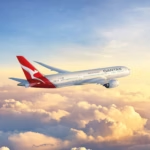Delta Airlines will return to Grand Junction after the post-pandemic era. Starting in three of December, Delta will offer direct flights to Salt Lake City International Airport reconnecting Grand Junction with an important hub that promises broader accessibility. The resumption of Delta’s operation comes after a two-year absence due to the COVID-19 pandemic. This return will contribute to the region’s connectivity and economic activity. Frequent flyers such as Gerald Burke expressed excitement about the airline’s operation in the airport.

Community Effort Behind the New Flights
Delta’s return signifies a major role in the economic boost in Grand Junction and Mesa County. More particularly, Angel Padalecki, Executive Director at the Grand Junction Regional Airport said:
“The estimated local economic impact of this service alone is $34 million to the Grand Junction economy. Here at the airport, you know, we have nearly a $1 billion annual economic impact locally, and this will further add to that”
In addition, the effort to bring the airline back to Grand Junction has been a community-driven initiative. Hence, Wes Horrocks, spokesperson for Sky West Airlines emphasises the collaborative spirit of the community that made this attempt possible.

Strategic Fleet Extension
Delta Airlines has recently updated its delivery schedule for the Boeing B737-10 aircraft with the first set to arrive at the beginning of 2026. More particularly, in their third quarter financial statement, Delta revealed that Boeing plans to deliver the initial twenty B737-10s in 2026 with an additional 80 to follow. This revises the original delivery projection from 2025 to a later date. Moreover, Delta’s CEO, Ed Bastian had previously indicated that these delays might extend into 2027. the airline ordered 100 B737-10s in 2022, with options for 30 more.
During September, the carrier committed to acquire 350 aircraft which include seventy-four A220-300s ninety-one A321-200Ns, nine A330-900Ns, eleven A350-900s, twenty A350-1000s, and 100 B737-8s. So far the airline has received 27 new aircraft with nine of those delivered in the third quarter. During an investor call Daniel Janki, chief financial officer and executive vice president at Delta added:
“We continue to expect our fleet growth to be less than 2% this year with 20 net aircraft additions as half of our new deliveries are replacements,”
The carrier’s immediate responses to its updated Boeing B737-10 delivery schedule and its resumption of service at Grand Junction Regional Airport underlines a strategy to manage current challenges and explore growth opportunities. Therefore, how will these strategic moves impact Delta’s future performance and influence its role in the global aviation market? Share your thoughts in the comments below.









